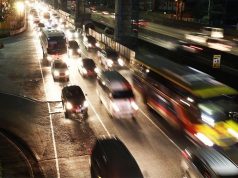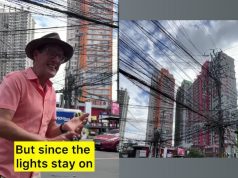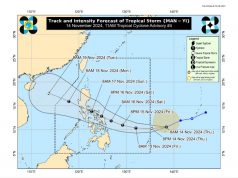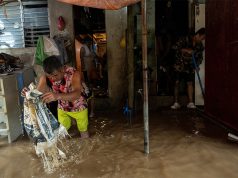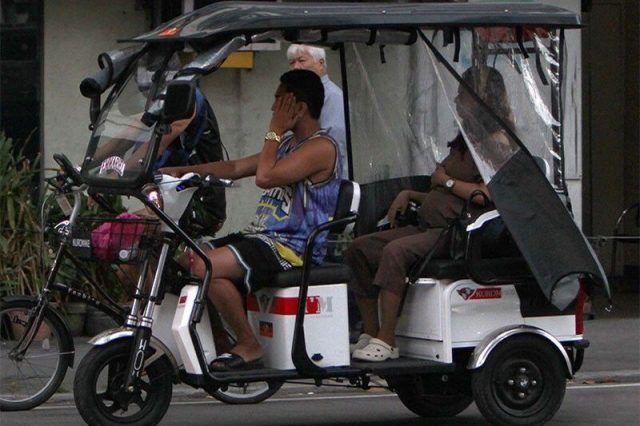
“Regulate, not ban.”
This was the comment of some Filipinos after the Metro Manila Council passed a resolution banning electronic bikes and electronic trikes on major roads in the National Capital Region.
The council, the policy-making body of the Metropolitan Manila Development Authority, is composed of NCR mayors and the MMDA chairperson.
Under MMDA Regulation No. 24-022, e-bikes, e-trikes and other small vehicles like tricycles, pedicabs, pushcarts and “kuligligs” or tractor-type vehicles, will not be allowed to traverse national roads, circumferential roads and radial roads for safety reasons.
It will take effect in April 2024.
Those who are caught violating the resolution will be fined P2,500.
Moreover, the resolution also requires motorists using electric-powered vehicles to have a driver’s license. For motorists apprehended without one, the vehicles will be impounded.
Major roads referred include the Epifanio delos Santos Avenue, Araneta Avenue, Roxas Boulevard, Ortigas Avenue, Rizal Avenue, Mindanao Avenue and Marcos Highway.
RELATED: LIST: Major roads covered by ‘e-vehicle ban’ penalties
An information campaign will also be carried out to ensure motorists know of the new regulation. Local government units (LGUs) are similarly tasked to enact their own ordinances to align with the resolution.
MMDA Acting Chairman Romando Artes said that the ban is enforced for safety reasons.
He added that the government recorded 554 accidents involving e-trikes and e-bikes, including two fatalities, last year.
“Kailangan nang i-regulate ‘yan para mabawasan ang aksidente,” Artes said in an interview.
However, he added that e-bikes and e-trikes can cross major thoroughfares if no other routes are available.
“Kung walang dadaanan at kailangang mag-cross, pwede silang mag-cross, pero hindi pwedeng bumaybay,” Artes said.
The Land Transportation Office also said it wants e-bikes and e-trikes to be registered and its drivers, to have licenses.
Meanwhile, the impending ban on electric-powered transportation on major roads did not amuse some Filipinos who said it would pose mobility issues to those who can only afford such vehicles.
According to them, the government should regulate them instead.
“Nakatating po tayo sa Rotary meeting gamit ang aming reliable na e-bike. Regulate e-bikes and alternative modes of transportation. Don’t ban!” a social media user said.
Nakatating po tayo sa Rotary meeting gamit ang aming reliable na e-bike.
Regulate e-bikes and alternative modes of transportation. Don't ban! pic.twitter.com/gETKAgXCbJ
— Random (@RandomFudges) February 28, 2024
“On a personal note, this ban on e-bikes along national roads is making me worry a bit. In a few months, my workplace is moving to Antipolo and I initially want to get a pedal-assist e-bike to help me with my commute. The only direct route is via Marcos Highway,” another user, who identifies as a cyclist, said.
“It is genuinely ridiculous that the MMDA [wants] to crack down on micromobility EVs [electric vehicles] without realizing that most of the users are those who cannot afford to have a car and are trying their best to make the most out of a crappy transport system,” the user added.
“By banning these EVs from national roads, users will be forced to take more circuitous routes, some of which don’t even exist. Moreover, the sweeping generalization of these EVs shows the short-sightedness of the powers that be, as there are a ton of variations in this field,” he said.
“Ultimately, users who will be affected by this ban will either (1) have to use public transport, adding a bigger strain [on] an already ailing system that has its own problems, or (2) get a private vehicle, adding to the already congested roads. Nobody wins,” the user continued.
Another Pinoy commented it was an “opportunity to integrate additional modes of transportation in a safe and responsible manner.”
“One step forward, many steps back,” the user said.
“A blanket ban on e-bikes and e-trikes does not address the need for driver education and regulation,” he added.
“Adaptation to a car-centric society with limited transportation. Banning them only harms the common Filipino, tapos ipapa-phaseout niyo pa ang jeepney,” another user said.
“No road should ever be exclusionary to alternative means of transportation. Why are cars and motorcycles the default? Where are the trams and bus services? If your only choice is car, then your city fails in being a city,” wrote a different Pinoy.
Mobility advocate Robert Anthony Siy, who used to head the Pasig Transport Office, also argued that Filipinos buy e-bikes and e-trikes “because they meet needs in ways the rest of the transport system cannot.”
He also reposted an online user’s post about her mom, a person with a disability, using an e-bike for personal mobility purposes.
“Ban them and you take away her mom’s ability to live life — because you got mad over some viral videos. Videos which the data strongly suggests are isolated cases anyway,” Siy wrote.
People buy e-trikes and e-bikes because they meet needs in ways the rest of the transport system cannot.
Ban them and you take away her mom's ability to live life – because you got mad over some viral videos. Videos which the data strongly suggests are isolated cases anyway https://t.co/QkPj884sLr
— persona ng grasa (@goodkidbikecity) February 28, 2024
Another user aired a similar sentiment.
“The e-trike drivers I encounter while biking are mostly women [with] children. This is an accessibility issue [’cause] our public transpo sucks and not everyone can afford motor vehicles,” the user said.
A different user argued that people needed to be more educated about “road safety” and not to be imposed with “restrictive measures.”
Transportation advocates likewise criticized the resolution, saying there was a “lack of consultation” with actual e-vehicle users.
The Move as One Coalition said it was a move they see as pivotal when it comes to discussing said measures.
“But why were there no e-vehicle users present at the meeting? They are taxpayers, too, and deserve to have a say in measures that would affect their fundamental right to mobility and safety. They should be consulted,” they said.
Ira Cruz, director for AltMobility PH, said that the policy could result in problems when it comes to public mobility.
“Back to basics: In order to improve mobility for all, we must open additional modes outside of private vehicles; Forcing people to take circuitous routes is the exact opposite,” he said in a tweet.
“We need better decision-makers that can go beyond piece-meal policies. What the country needs is a sound plan that covers mobility at all stages and for the most vulnerable, above all else; Only then can we improve mobility for all,” he added.
ALSO READ: Transpo advocates question legality, lack of consultation in e-vehicle ban policy
Last year, Filipinos were encouraged to use e-bikes amid the continuous fuel price hikes at that time.
It also saw a boom following the COVID-19 pandemic as people tried to find means to move around in a cost-effective and convenient manner.
E-bikes likewise require minimal maintenance and are cheaper than their motorized counterparts.





